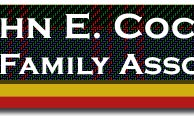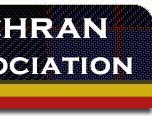My Story
By Effie Ruth Cochran Montague
All of you have read Seven Switchbacks to Home and know
that I left Doumecq sadly, but with an eagerness to get into the
world. Zenna was going to Whitman College in Walla Walla and Robert
was in High School there. A place was found for me to work for my
board with Dr. and Mrs. Krasch. He was a Professor in German and she
was a music teacher at Whitman College. The next year they went to
Purdue University to teach, so I went to work for Dr. Van Patten.
Years before my father had attended church where Dr. Van Patten's
father had been pastor.
My main job at the Van Pattens' was to baby sit their daughter,
Polly. She was about ten years old and sitting with her was very
interesting. The Doctor would frequently leave us at the movie house
to spend afternoons. The stars of the movies in those times included
Mary Pickford, Douglas Fairbanks, and Mickey Rooney. On one occasion
he let us go alone when we hashed out to see a house on fire.
After two years at a Walla Walla High School the folks sold the
ranch on Doumecq to Clark and Edna and moved to the Horse Heaven
Hills and started farming there. While the move was being made,
Mother, Sid, and I went to Clarkston, Washington and lived in an
apartment.
I finished high school in Kennewick. After graduating from high
school only a summer course was needed for a teaching certificate. I
went to Cheney Normal School to prepare for that certificate. At
that time teachers colleges were called Normal Schools. Many boys
and girls I had gone to school with in Walla Walla, Clarkston, and
Kennewick were aspiring to be teachers. Some of the things I
remember were not the course of study. I especially remember the
Geography professor. He greeted us by saying "The weather is
hot, so make yourselves as comfortable as possible. Sleep if you
want to, I'm going to pass you anyway." Miss Sotenfeld, the
English teacher was bored with it all and yawned loudly without
apology.
We were all searching for jobs in the fall. One girl in the class
got a position at the little school in Peach. It was on the Columbia
River above the present site of Grand Coulee Dam. It was a one room
school with eight or nine students in all eight grades. She received
$80 a month.
I drew a good paying job at Burbank, Washington. There was a five
room school; I taught the first two grades with 25 or 30 children.
The pay was $100 per month. Our cousin, Eldon Kittrel, was Railroad
Station Master there and their two younger children were in my room.
Burbank was a thriving new irrigation town. There was a grocery
store, a hardware store, a dress shop, a dry goods store, a church,
a hotel, and the school. A U.S.Senator (I think his name was
Chandler) had started a thoroughbred horse farm on the banks of the
Snake River. He had built a big house, barns, a house for hired
hands, and had large alfalfa fields and a huge vineyard. The new
irrigation district had brought about much of this growth and
expansion. The bridge across the Snake River toward Pasco was being
built. When the bridge was finished there was a big community
celebration. Governor Hartley came and cut the ribbon to open the
bridge. Burbank was an active community in spite of its recent
problems. The year before there had been an epidemic of small pox
that left many scars. Some of the children had only one parent.
During this time the Folks had purchased an acreage near the
Columbia River at Hover. They rented a house to live in until they
could build one of their own. I think they paid $15 a month rent. I
soon became a part of a group of 15 or 20 young people there. Robert
and Sid were in and out between jobs. That summer we went to the old
swimming hole and had wiener roasts, picnics, and dinners at Ashbys,
Dahlins, and our place. We picked asparagus, strawberries, cherries,
apricots, cantaloupes, and picked up potatoes. We did any of the
field work the truck farmers wanted done.
It was a time of family gatherings. That summer Uncle Henry, Aunt
Asenith, and Aunt Effie came out from Tennessee to visit. Uncle Sam,
Aunt Maggie, Uncle Billie and Aunt Nora spent a lot of time together
at our place. When the family was together Mr. Maxey of Doumecq came
to visit. After he had listened to Uncle Henry expounding for a
time, he would go and visit the boys across the street and sit,
talk, and smoke his pipe. The neighbors were three young men who had
purchased 23 acres. One of those young men was Grover Montague.
Grover did a lot of work on the house for the folks at Hover.
During the building Uncle Henry stood around in the way and watched.
Before he left he said to me, "Ruth child, marry that boy. He's
a good worker." After a busy and interesting year teaching
first, second, third, and fourth grade at Hover I followed Uncle
Henry's advice and married Grover.
We moved a big house onto the 23 acres. We planted an orchard on
the land and also acres of alfalfa. The truck garden included
strawberries, peas, potatoes, onions, cantaloupes, and watermelon.
Finally, we even raised turkeys. We lived there about 15 years. When
we sold the property at Hover we moved to Boyds, Washington on the
upper Columbia River and later to Yakima. At Newberg Grover worked
for Swan Island Ship Yard. After World War II we left Newberg and
bought a share in the cooperative plywood mill at Port Orford,
Oregon.
Each of these places we lived has an interesting and extensive
story of its own that could be told. When we retired from the
plywood mill in Port Orford we came to Vashon Island.
Effie Ruth Cochran Montague, February 10, 1901 - January 17, 2000
Reprinted from Cochran Chronicles, Volume 8, Number 1,
December 15, 1985
© JECFA 1985
More about Ruth
Up







